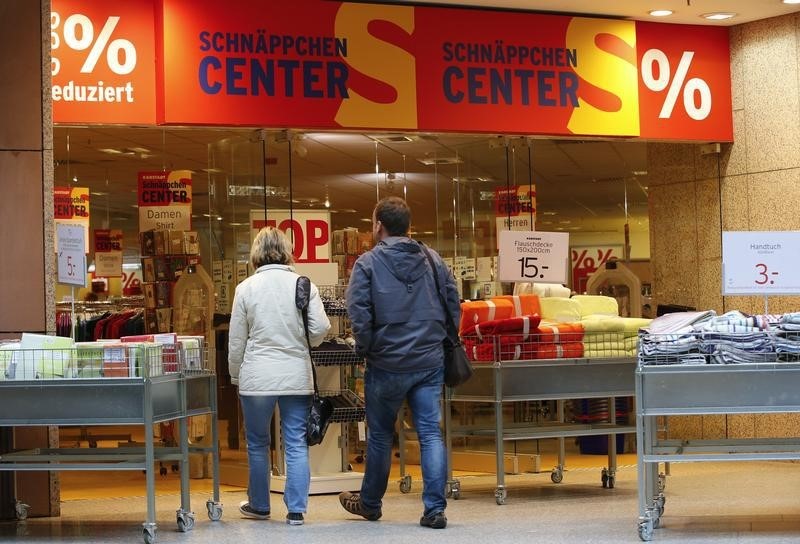By Geoffrey Smith
Investing.com -- Confidence among German households plunged to a new record low in September as the spiraling energy crisis in Europe drove a sharp increase in intentions to cut back on other spending.
GfK's consumer confidence index for Europe's largest economy fell to -36.5 from a downwardly revised -30.9 in August. That's well below its previous troughs either during the Great Recession in 2009 or at the start of the pandemic in 2020.
"The fear of significantly higher energy costs in the coming months is forcing many households to take precautionary measures and set aside money for future energy bills," said GfK analyst Rolf Bürkl. "This is continuing to weigh on the consumer climate, because it leaves less money available for other kinds of consumption."
The numbers suggest that consumers are less advanced than businesses in adjusting to the harsh new realities of a life without cheap Russian oil and gas. Ifo's business climate index, typically the most reliable gauge of business sentiment in Germany, stabilized in August after plunging in July, according to figures released on Thursday.
Parts of GfK's index are also stabilizing, notably expectations for the broader economy and for personal income. However, the overall index moved lower because the component tracking consumers' inclination to save shot up.
Germany is scrambling to fill its gas storage facilities before the onset of winter, a task made difficult by Russia's refusal to pump the agreed volumes of gas through the Nord Stream 1 pipeline. The government has set a target of filling them to 85% of capacity by the start of October, with the aim of avoiding rationing through the winter. They are currently on track to hit that target, at over 81%, in line with historical averages. However, Russian gas monopoly Gazprom (MCX:GAZP), which is currently sending 20% of the agreed volumes through Nord Stream, is to shut the pipeline completely for three days of unplanned maintenance at the end of the month, raising fears of an extended total shutdown.
"Mainly due to the scarce supply of natural gas, there is concern that energy prices will continue to rise in the coming months," GfK said.
The lack of availability of other energy sources, including historically reliable ones such as nuclear power, continues to drive wholesale European electricity prices higher. German benchmark prices for next year topped 800 euros a megawatt-hour in early trading on Friday, a new record high.
